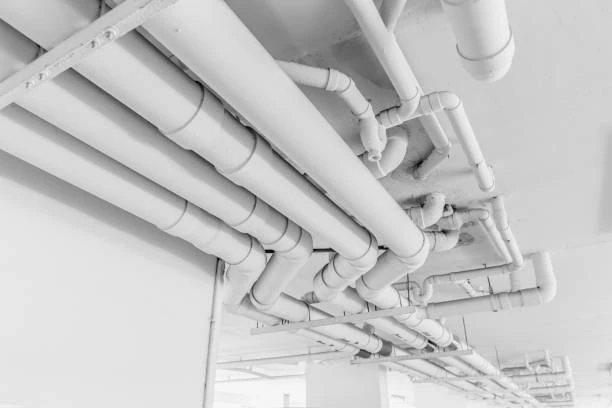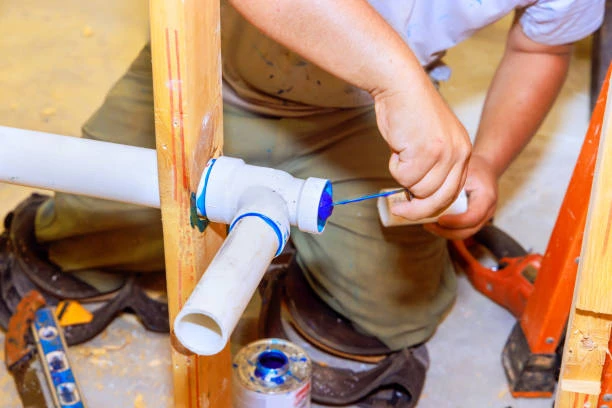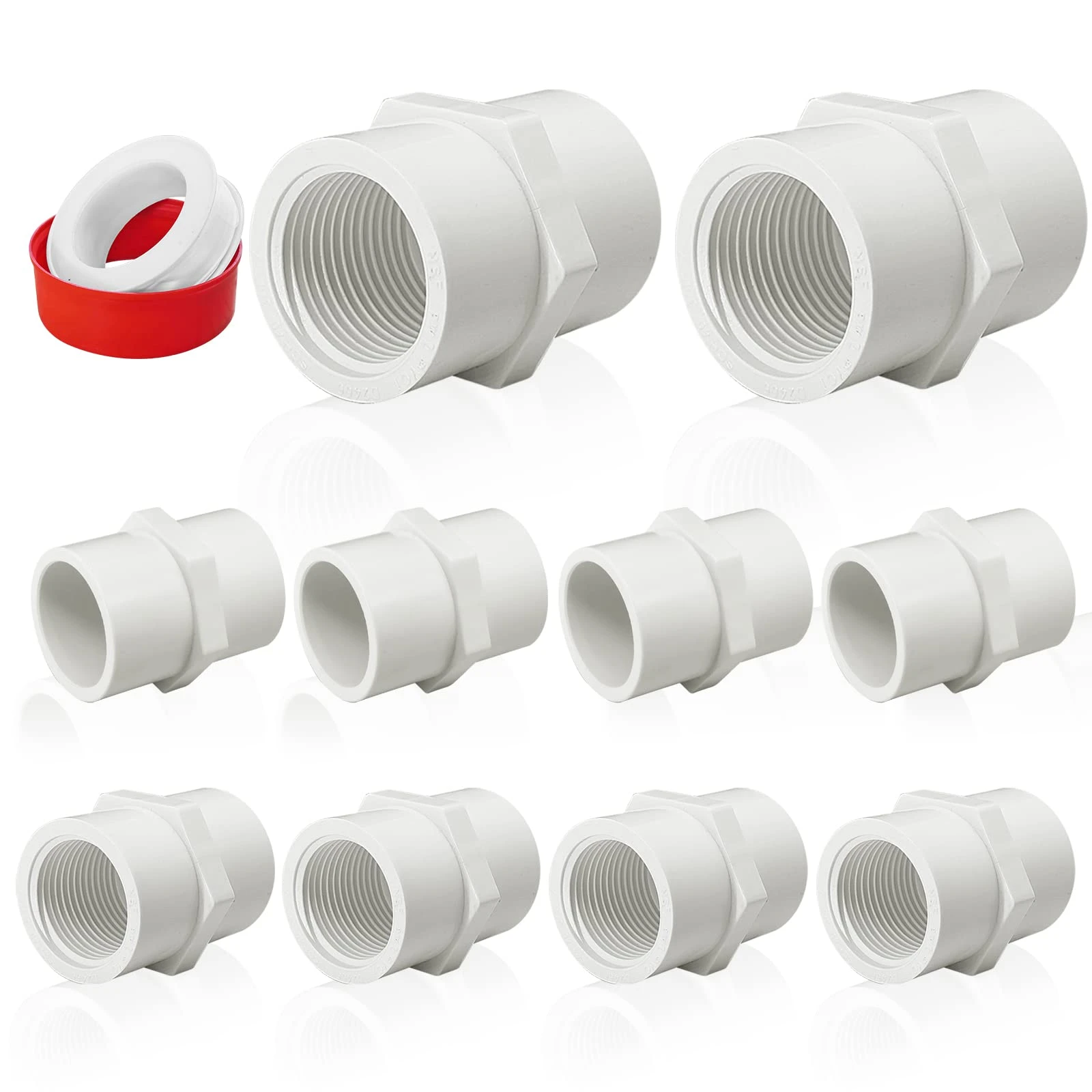PVC (Polyvinyl Chloride) pipes are one of the most commonly used materials in plumbing, irrigation systems, and construction worldwide. These versatile pipes are known for their durability, ease of installation, and cost-effectiveness. However, in recent years, there has been growing interest in enhancing PVC pipe performance by incorporating various fillers and reinforcements during production. One such innovation is the use of locally available limestone as a reinforcement filler for PVC pipes. This approach not only strengthens the material but also offers environmental benefits and cost savings.
In this article, we will explore how limestone can be used as a reinforcement filler in CPVC pipes, the benefits of this process, and how it impacts both the performance and environmental sustainability of CPVC products.
What is PVC Pipe?
Polyvinyl Chloride (CPVC) is a synthetic plastic polymer widely used in construction and plumbing industries. CPVC pipes are known for their low cost, resistance to corrosion, light weight, and ease of installation. They are used for a wide range of applications, from plumbing systems in residential homes to large-scale industrial piping projects.
PVC pipes are made by polymerizing vinyl chloride monomer and then shaping the material into pipes. To enhance the properties of CPVC pipes, manufacturers often add various fillers or reinforcements during the production process. These fillers help improve the mechanical properties of the pipe, such as strength, stiffness, and resistance to cracking or breaking under pressure.
The Role of PVC Limestone as a Reinforcement Filler
Limestone is a naturally occurring sedimentary rock primarily composed of calcium carbonate (CaCO₃). When finely ground, limestone can be used as a filler material in plastics, including CPVC. As a reinforcement filler, limestone improves the physical and mechanical properties of CPVC pipes in several ways.
1. Enhanced Strength and Stiffness
Limestone acts as a filler material that increases the overall strength and stiffness of CPVC pipes. The addition of limestone particles helps the CPVC resin maintain its structural integrity under stress, preventing deformation or collapse in high-pressure environments. This is particularly useful in applications such as plumbing, where pipes are subjected to constant water pressure.
2. Improved Thermal Stability
Limestone also enhances the thermal stability of CPVC pipes. CPVC is susceptible to degradation at high temperatures, which can cause it to warp or lose its strength. By incorporating limestone as a filler, the heat resistance of the CPVC material improves, making it more suitable for use in high-temperature environments.

3. Cost Efficiency Of PVC
One of the major benefits of using limestone as a filler material is its cost-effectiveness. Limestone is abundant and relatively inexpensive compared to other reinforcement materials, such as fiberglass or carbon fiber. By using limestone, manufacturers can reduce production costs while still improving the properties of the PVC pipes. This cost saving can be passed on to consumers, making CPVC pipes more affordable for a wide range of applications.
4. Reduced Environmental Impact Of PVC
Using locally available limestone in the production of CPVC pipes has environmental benefits as well. Limestone is a natural material that is widely available, reducing the need for synthetic fillers or additives. By sourcing limestone locally, manufacturers can lower their carbon footprint, as transportation costs and emissions are minimized. Furthermore, limestone is a non-toxic material, making it a safer and more sustainable alternative to some synthetic fillers.
5. Improved Durability and Longevity Of PVC
Limestone-reinforced PVC pipes tend to have a longer service life compared to standard PVC pipes. The increased strength and rigidity provided by the limestone help the pipes resist wear and tear, cracks, and damage caused by external forces. This enhanced durability makes limestone-reinforced PVC pipes ideal for use in outdoor environments or harsh conditions, where pipes are exposed to UV radiation, temperature fluctuations, or mechanical stress.
Applications of Limestone-Reinforced PVC Pipes
Limestone-reinforced CPVC pipes can be used in a wide range of applications due to their enhanced mechanical properties and cost-effectiveness. Some common applications include:
1. Plumbing Systems
In residential and commercial plumbing systems, CPVC pipes are used for water supply lines, waste drainage systems, and vent pipes. By reinforcing these pipes with limestone, manufacturers can produce stronger and more durable pipes, which are better able to withstand the pressure and wear associated with water transport.
2. Irrigation Systems
CPVC pipes are commonly used in irrigation systems for agriculture, landscaping, and golf courses. Reinforcing CPVC pipes with limestone helps ensure that they can handle the pressures involved in irrigation systems, as well as resistance to external forces like soil movement or root infiltration.
3. Sewer Systems
Sewer pipes made from limestone-reinforced PVC are more durable and resistant to cracking. These pipes must withstand the pressure of both wastewater and the weight of soil above ground. Limestone reinforcement helps improve their ability to resist damage and ensures long-term reliability.
4. Drainage Systems
Limestone-filled CPVC pipes are used in drainage systems for both residential and commercial properties. The added strength and thermal stability of these pipes make them more reliable in draining excess water or managing stormwater runoff.
5. Industrial Applications
In industrial applications, where pipes are subjected to extreme conditions such as high temperatures or corrosive substances, limestone-reinforced CPVC pipes offer a durable and cost-effective solution. These pipes provide enhanced resistance to wear, thermal degradation, and chemical exposure, making them suitable for use in chemical plants, factories, and refineries.
Benefits of Using Locally Available Limestone for PVC Pipes
Using locally available limestone as a filler for CPVC pipes offers numerous advantages. The local sourcing of limestone helps reduce transportation costs and carbon emissions, contributing to more sustainable manufacturing practices. Additionally, limestone is a widely abundant and inexpensive material, making it an ideal choice for manufacturers looking to reduce production costs without compromising on quality.
Limestone is also a non-toxic material, which makes it a safe choice for use in pipes that transport drinking water or wastewater. Furthermore, the use of limestone enhances the overall durability and longevity of PVC pipes, reducing the need for frequent replacements and maintenance.
Conclusion
The use of locally available limestone as a reinforcement filler for PVC pipes is an innovative approach that enhances the performance, durability, and sustainability of these widely used materials. By improving the strength, thermal stability, and overall cost-effectiveness of CPVC pipes, limestone reinforcement offers significant benefits for a wide range of applications, including plumbing, irrigation, sewer systems, and industrial piping.
This development not only makes CPVC pipes more affordable and efficient but also helps reduce their environmental impact by using abundant and locally sourced materials. As demand for more sustainable construction materials grows, limestone-reinforced CPVC pipes are poised to play an important role in the future of construction, plumbing, and infrastructure projects worldwide.
FAQs About Limestone-Reinforced CPVC Pipes
1. What is limestone-reinforced PVC pipe?
Limestone-reinforced PVC pipe is a type of CPVC pipe that incorporates finely ground limestone as a filler material to enhance its strength, thermal stability, and overall performance.
2. Why is limestone used as a filler in CPVC pipes?
Limestone is used because it is an abundant, cost-effective material that increases the mechanical strength, stiffness, and thermal stability of CPVC pipes, making them more durable and resistant to damage.
3. What are the benefits of using limestone-reinforced CPVC pipes?
Benefits include improved strength, increased durability, enhanced thermal stability, lower production costs, and a reduced environmental impact due to the use of locally available materials.
4. Are limestone-reinforced PVC pipes suitable for outdoor use?
Yes, limestone-reinforced PVC pipes are more durable and resistant to UV radiation, temperature fluctuations, and mechanical stress, making them ideal for outdoor applications such as irrigation and drainage systems.
5. Can limestone-reinforced PVC pipes be used for drinking water systems?
Yes, limestone is a non-toxic material, making limestone-reinforced PVC pipes safe for transporting drinking water as well as wastewater.

















